During the opening ceremony of Exercise Sea Breeze at Glasgow’s King George V Dock, I spoke with Rear Admiral Thomas Wall, Commander of Submarines NATO, about the significant role of NATO training in enhancing the operational capabilities of Ukraine’s navy.
Admiral Wall highlighted the strategic importance of the ongoing exercises aimed at demining the Black Sea.
We discussed the eagerness of the Ukrainian crews to commence demining the Black Sea and how their training with NATO has been instrumental.
Wall highlighted the excitement among the Ukrainian sailors as they approached this significant two-week exercise. “This is kind of a culmination of the training. They’ve been training now, almost two years. So this is the kind of final test or the final exam of the mission,” he explained.
The crews are not just eager to demonstrate their capabilities but also to work alongside other nations with a shared mission. Wall mentioned, “The commanding officer looked out behind him. We’re so happy to be working with all these other nations that have the same mission.”
NATO’s Strength in Unity
One of the key strengths of NATO, according to Wall, is the ability to bring together different nations to operate cohesively. “What’s even better, when you look across all the nations, we had several platforms and crews that can do it. But they can operate together. So that’s what makes us stronger,” he noted.
This approach enhances their capability to tackle complex missions, including demining operations in diverse maritime environments.
Wall continued, “The key there for us in NATO is, it’s great that we have this. What’s even better, when you look across all the nations, we had several platforms and crews that can do it. But they can operate together. So that’s what makes us stronger, is the fact that we can take nations, get them in the same area, they can do the same mission as a group from different countries and achieve more than a single nation. That’s what I love seeing from a NATO perspective. It makes us stronger, it makes us more capable.”
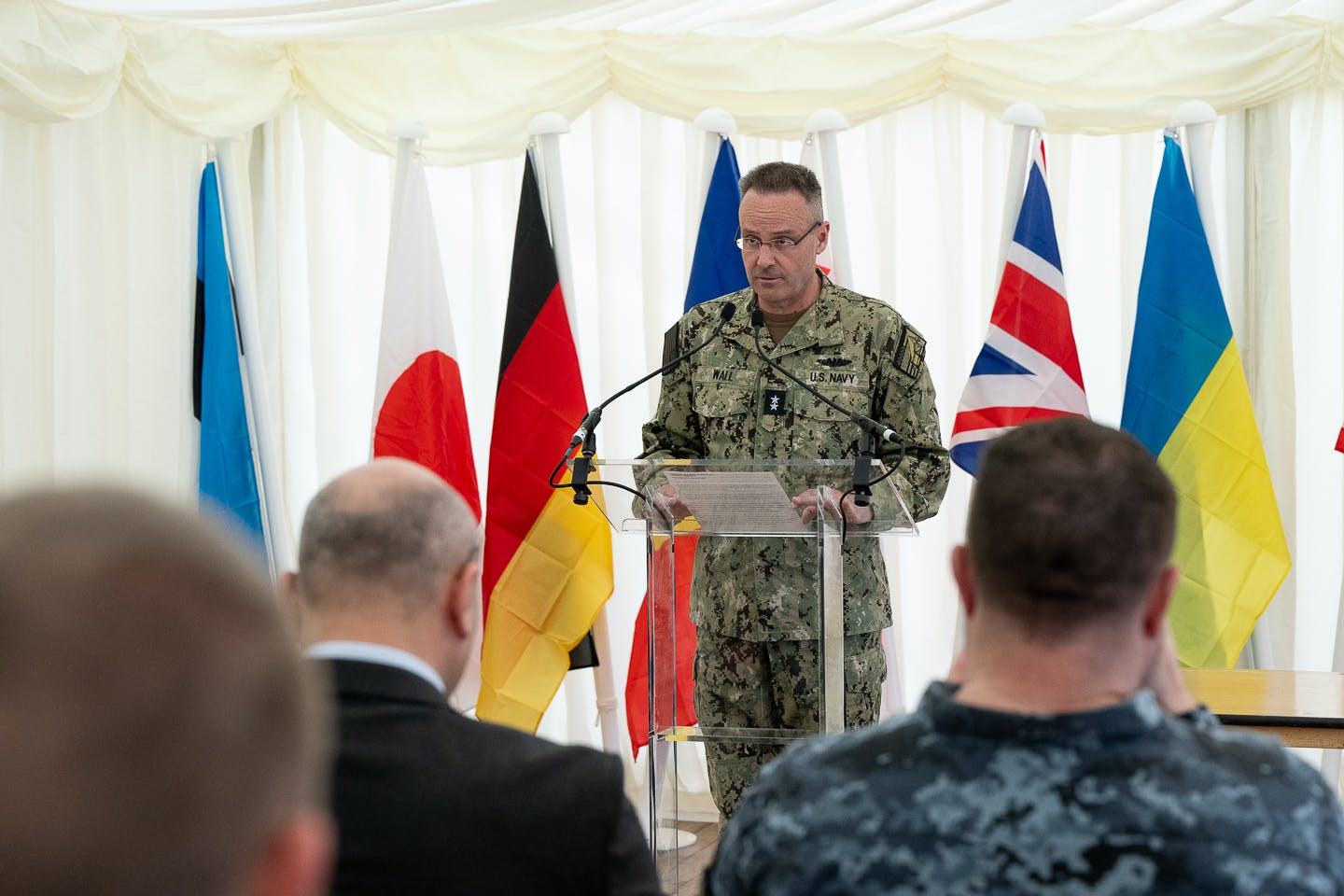
Preparing for the Black Sea
Wall explained that the skills developed during these exercises are directly transferable to operations in the Black Sea. However, he acknowledged that local knowledge would be crucial. “What they will need to do is when they get to the Black Sea, they will learn localised information. Every area is different, especially in the maritime environment,” he said. Wall pointed out that the Black Sea presents unique challenges.
“The area that they’re trying to de-mine is a large river also, which it’s not like a river, it’s more like a large portion of the sea. So there’s large areas, but there’s also currents that play into it,” he explained.
Despite these challenges, Wall expressed confidence in the Ukrainian crews’ ability to adapt and succeed. “I’ve no concerns that they will not be able to figure this out and do it quickly and make a huge difference,” he added.
He stressed that being near their homeland would aid them significantly. “When you’re near your town, your country, you know more about the areas, you understand it better and you learn,” Wall said.
Training and Economic Support
Speaking more broadly earlier in the day, Rear Admiral Wall highlighted the importance of training and rehearsing alongside growing the capabilities of the Ukrainian Navy. “Our ability to train and rehearse, whilst growing the capability of the Ukrainian Navy, will support the globally shared long-term goal of creating a safe and prosperous maritime environment in the Black Sea,” he stressed.
This, he explained, is essential not only for supporting Ukraine’s economy but also for ensuring the free flow of maritime trade. Wall expressed his admiration for the crews of the Chernihiv and Cherkasy, noting how impressed and inspired he has been by their achievements.
“I have been hugely impressed and inspired by the crews of the Chernihiv and Cherkasy. The amount they have achieved in such a short period of time is truly remarkable,” he said.
Remarks on Glasgow itself
In his speech at the start of the ceremony, Rear Admiral Wall drew inspiration from the city of Glasgow, highlighting its resilience and spirit of collaboration. “Let us take a moment to draw inspiration from the great city of Glasgow. A city that much like our esteemed navies, is a testament to resilience, unity, and the spirit of collaboration,” he began.
Wall pointed out the importance of the exercise beyond military operations, as a symbol of unity and commitment. “Exercise Sea Breeze is more than a military operation. It is a symbol of our unity and commitment since 1997,” he said.
He also mentioned the critical role of NATO in coordinating security assistance and training for Ukraine, referencing a comprehensive plan agreed upon at a recent Defence Minister Summit.

Rear Admiral Wall’s distinguished career in the US Navy has equipped him with extensive experience in submarine operations and maritime security. Since assuming command at NATO’s Submarine Command, Wall has overseen various strategic exercises and operations. His background includes operational tours, staff assignments, and command roles, highlighting his comprehensive understanding of naval warfare and international cooperation.
Speaking with Rear Admiral Wall provided valuable insights into the enthusiasm and readiness of the Ukrainian crews. It underscored the importance of NATO’s training programmes in preparing these sailors for real-world challenges. The collective strength of NATO, combined with localised knowledge, positions the Ukrainian Navy to effectively address the mine threats in the Black Sea.
As Exercise Sea Breeze gets underway, the cooperation between Ukraine and NATO is clearly paying off. Rear Admiral Wall’s comments underline how crucial this training is for the Ukrainian Navy. The involvement of Ukrainian crews in these exercises not only prepares them for the challenges ahead but also strengthens their long-term commitment to security in the Black Sea


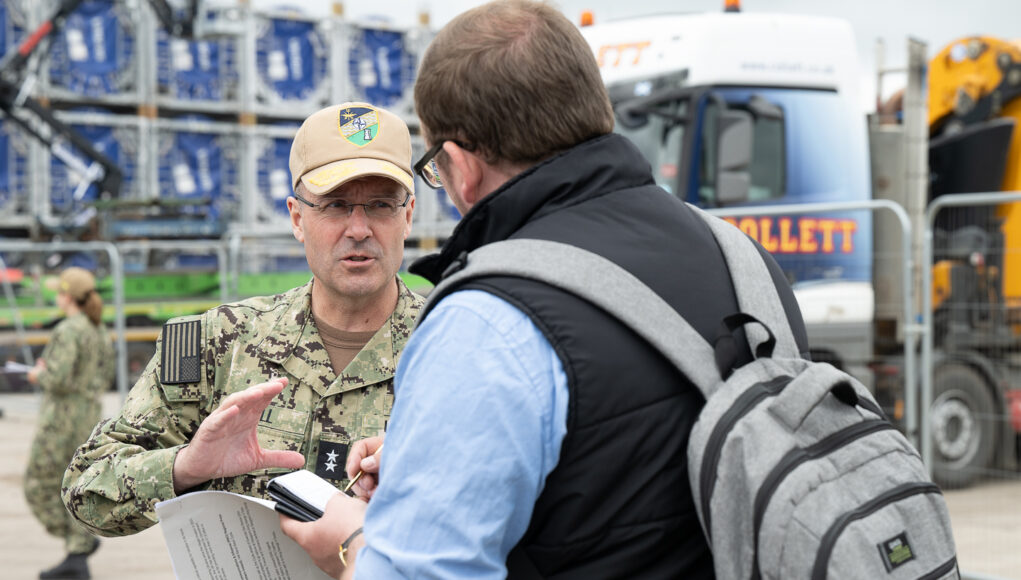
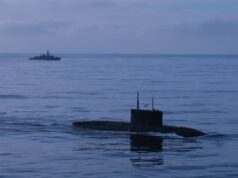
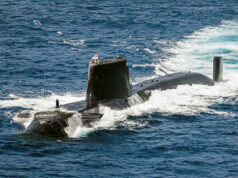
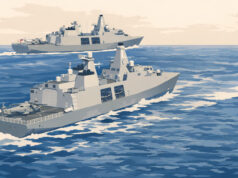
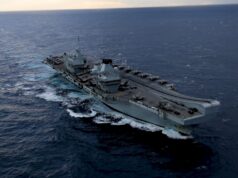
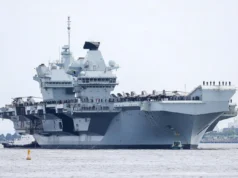
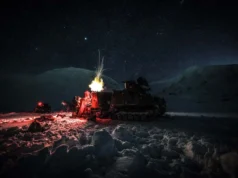
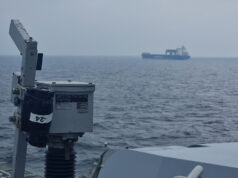
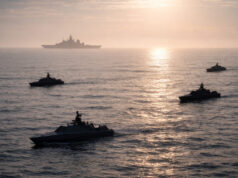
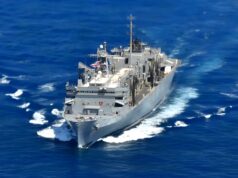
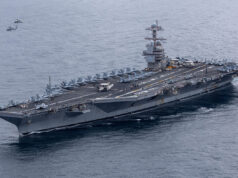

What a load of guff. Should someone tell me they understood the Duddon Estuary, the tides and shifting sands, I would tell them to foxtrot oscar.
There are many tidal areas around the UK and I doubt many people would ever claim to be knowledgeable about them so what this bloke was on about is anyone’s guess; he should give his a head a wobble.
You Don’t need many people, just some people. I have the honour of knowing a few gnarly cornish fishermen and they definitely know their tidal areas. It’s their job. The only guff here is the comment I’m responding to.